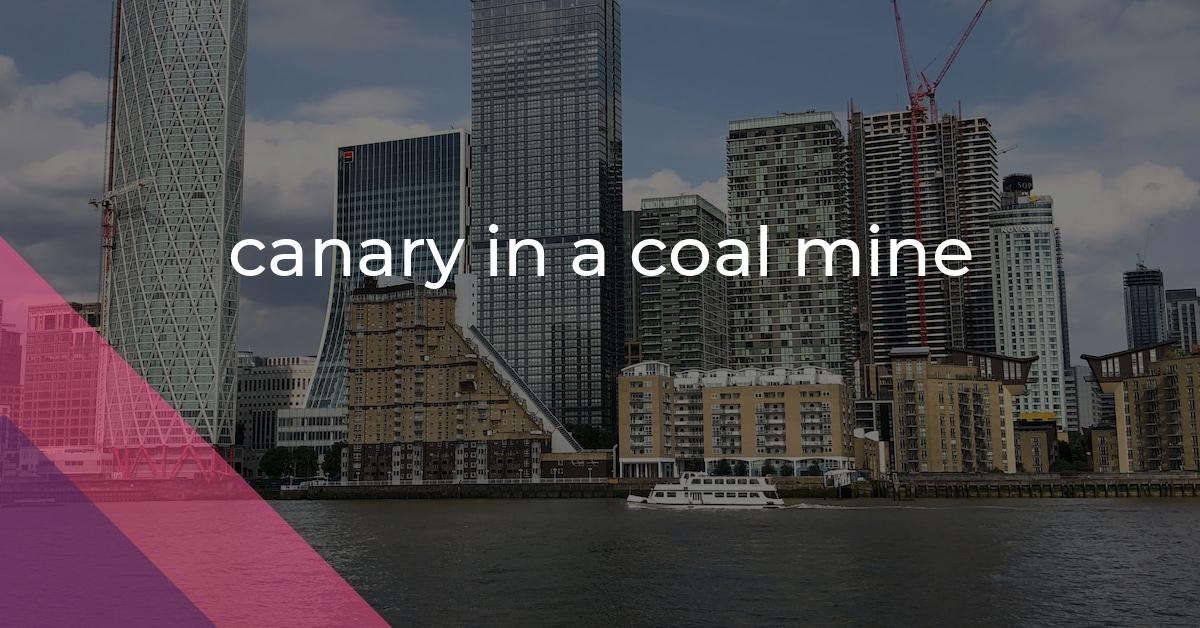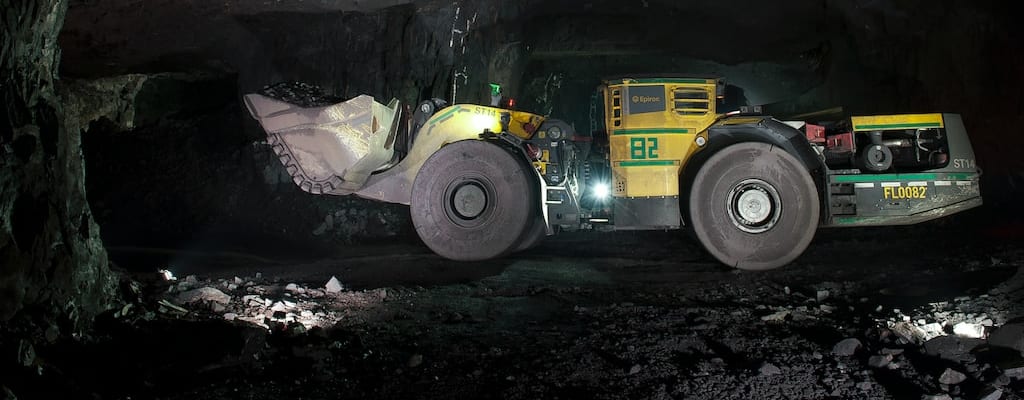canary in a coal mine: Idiom Meaning and Origin
What does ‘canary in a coal mine’ mean?
The idiom "canary in a coal mine" refers to a warning sign or indicator of danger. It originates from the practice of miners using canaries to detect toxic gases in coal mines. If the canary showed signs of distress or died, it indicated the presence of poisonous gases that could harm the miners.

Idiom Explorer
The idiom "irons in the fire" means having multiple projects or tasks in progress or pursuing multiple opportunities at the same time. It suggests being busy with various things and being proactive in pursuing new prospects or ventures.
The idiom "in the can" means something that is completed or finished.
The idiom "heads up" means to give someone a warning or alert about something that is about to happen or to be prepared for something. It is often used to signal the need for caution or to help avoid possible danger or trouble.
The idiom "had better" is used to advise or warn someone about a particular action they should take in order to avoid a negative outcome. It implies a sense of urgency or necessity, often indicating that there may be negative consequences if the suggested action is not followed.
The idiom "goose is cooked" means that a person or situation is in a dire or hopeless position, with no chance of escape or success.
The idiom "gold mine" refers to a valuable or profitable resource or opportunity that can lead to great riches or success.
The idiom "fox in the henhouse" refers to a person or thing that poses a threat or danger by infiltrating a group or situation where they are not welcome or trusted.
The idiom "four-minute warning" refers to a hypothetical warning system in the United Kingdom during the Cold War era. It symbolizes the limited time people would have to prepare for a potential nuclear attack, emphasizing the urgency and immediacy of a dangerous situation.
Unmasking Öminous Warnings
The idiom "canary in a coal mine" refers to a warning or early indicator of danger or a potentially hazardous situation. This idiom originated from the practice of using canaries in coal mines to detect the presence of harmful gases such as carbon monoxide or methane. In the late 19th and early 20th centuries, coal miners would bring canaries into the mines as a form of early warning system.
Canaries are particularly sensitive to the presence of toxic gases. Their high metabolism and unique respiratory system make them react faster to the gases than humans. If the canary showed signs of distress or died due to the toxic gases, it served as an alarming signal for the miners to evacuate the mine immediately, avoiding potential injury or death.
This idiom gained popularity as a metaphor and has been used in various contexts beyond the literal mining scenario. It is often used to illustrate the concept of a person or situation serving as an early warning or indicator of a broader problem or danger. The metaphorical use of this idiom could be seen in various domains, such as economics, science, politics, and even personal relationships.
For example, in the realm of economics, a sudden drop in the value of a specific company's stocks may be considered a canary in a coal mine for the broader market, suggesting an impending financial crisis. Similarly, a noticeable change in an ecosystem, such as the disappearance of certain species, could be considered a canary in a coal mine for the overall health and balance of the environment.
In a political context, the idiom can be applied when certain events or policies serve as early warning signs of potential societal or democratic erosion. It acts as a cautionary signal, urging people to be vigilant and take necessary precautions to prevent a larger problem.
Furthermore, the idiom "canary fit" is related to the concept of a canary in a coal mine. It refers to a situation where someone or something is highly sensitive or vulnerable to a particular condition or circumstance. Just as a canary is sensitive to toxic gases, a "canary fit" describes someone who reacts strongly and negatively to a specific trigger.
An example of a "canary fit" could be a person with severe allergies who has an extreme reaction to a minor exposure to an allergen. Their intense and immediate response serves as a warning sign to others that the allergen is potentially dangerous and should be avoided. This idiom underscores the importance of recognizing the sensitivity of certain individuals or systems and taking appropriate measures to protect them.
The idiom "coals to Newcastle" is another expression related to the "canary in a coal mine" concept. It refers to the pointless or unnecessary act of supplying a commodity to a place that already has an excess or abundance of it. The phrase originated from the historical context of Newcastle, a town in England known for its wealth and abundance of coal mines.
Bringing coal to Newcastle would be redundant and unnecessary because the town was already well-supplied with coal. Therefore, saying "coals to Newcastle" implies a futile or unnecessary action that serves no practical purpose. This idiom can be used to caution against wasteful or redundant efforts, emphasizing the importance of evaluating needs and priorities before taking action.
Additionally, the idiom "gold mine" is connected to the concept of a canary in a coal mine. It describes a place, situation, or resource that yields great value, profit, or opportunity. This idiom has roots in the literal gold mines where precious metal was extracted. The discovery of a gold mine meant tremendous wealth and prosperity.
Similarly, in a metaphorical sense, a "gold mine" can refer to a valuable source of information, innovation, or success. For instance, a company may have a "gold mine" of customer data that can be utilized to improve marketing strategies and drive growth. This idiom highlights the importance of recognizing and leveraging valuable assets and opportunities.
Lastly, the idiom "kindle-coal" is an expression related to the canary in a coal mine metaphor. It describes the act of igniting or fueling conflicts or tensions, often in a passive-aggressive or provoking manner. Just as coal ignites when exposed to heat, "kindle-coal" refers to instigating or exacerbating a situation.
For example, someone may "kindle-coal" a dispute between two friends by subtly suggesting negative thoughts or spreading rumors. In this case, the person is metaphorically fanning the flames of conflict, much like adding fuel to a fire. This idiom serves as a reminder of the potential consequences and destructive nature of manipulative behavior.
The idiom "canary in a coal mine" originated from the practice of using canaries to detect harmful gases in coal mines. It serves as a warning or early indicator of danger. Beyond its literal mining context, this idiom has become a metaphor used in various domains to illustrate the concept of an early warning or indicator of a broader problem or danger.
related idioms:
- "canary fit": Describes a situation where someone or something is highly sensitive or vulnerable to a particular condition or circumstance.
- "coals to Newcastle": Refers to the pointless or unnecessary act of supplying a commodity to a place that already has an excess or abundance of it.
- "gold mine": Describes a place, situation, or resource that yields great value, profit, or opportunity.
- "kindle-coal": Describes the act of igniting or fueling conflicts or tensions, often in a passive-aggressive or provoking manner.
The ongoing exploration and interpretation of these idioms reveal their enduring relevance and depth of underlying messages. They emphasize the importance of recognizing warning signs, evaluating actions, and leveraging valuable assets and opportunities. By heeding these idiomatic warnings, we can navigate our lives and interactions with greater awareness and insight.
Example usage
Examples of how the idiom "canary in a coal mine" can be used in a sentence:
- The decline of honeybees is like the canary in a coal mine, warning us about the environmental health of our planet.
- The sudden increase in tension between the two countries might be a canary in a coal mine, indicating a potential conflict in the near future.
- The closing of several small businesses in the area could be seen as a canary in a coal mine, suggesting an upcoming economic downturn.
More "Expressions" idioms



